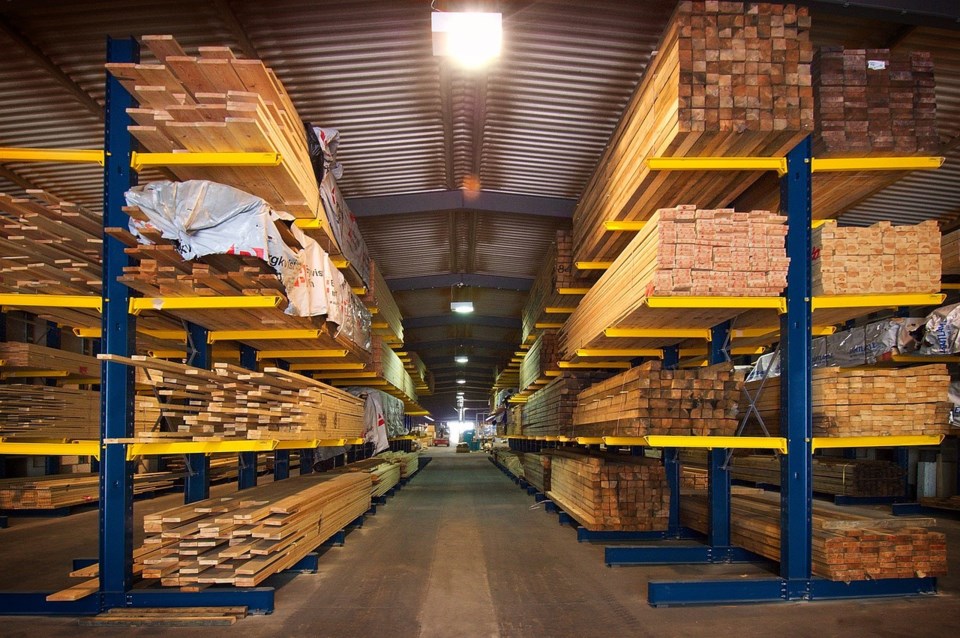It's been years since Carlos Zarate and others in Canada's decorative plywood industry started telling the federal government about a growing problem in their business.
The president of the Canadian Hardwood Plywood and Veneer Association warns of an industry in decline, but not due to falling demand for things like kitchen cabinets, decorative wood panels, furniture, and other non-structural wood products.
Zarate, who's also president of Industrie Ergie Inc. in Victoriaville, Que., said the association's members have seen their market share in Canada drop because they are unable to compete with plywood products imported from China at prices domestic producers could never hope to match, let alone beat.
The industry wants duties imposed on Chinese exporters, who they say enjoy unfair advantages such as heavy government subsidies and access to illegally harvested wood, flooding global markets with cheap goods that drastically undercut competitors.
But they've been dumbfounded by their inability to convince Canadian authorities to crack down on the Chinese products, which have been subject to hefty duties in the U.S. since 2017.
Canadian industry players complained to the Canada Border Services Agency about the situation in April 2020, urging an investigation into dumping and subsidies for their competitors in China.
"In terms of pricing, Canadian producers are consistently undercut by dumped and subsidized Chinese imports. Lost sales and price reductions have caused significant injury to Canadian producers, and over time, some customers have simply stopped asking Canadian producers to compete with Chinese import pricing," they told the CBSA in a submission.
"Producers must increasingly look to other export markets to sell their products. The primary export market is the United States, which is now protected against dumped and subsidized Chinese imports."
But the agency's investigation didn't go the way Zarate had hoped, and the association appealed in Federal Court about the decision of the president of the CBSA to drop the investigation.
The Federal Court of Appeal upheld the decision in April in another blow to the industry in Canada, Zarate said.
Zarate said the industry has been in contraction, a process that accelerated in the last 15 years when Chinese exporters ramped up their presence in Canada. They now account for more than half the country's market share.
He said Canadian firms find themselves competing in a "disrupted market," where Chinese-made products cost half or even a third of the price of those made in Canada.
"Even before the case, we've seen many Canadian plywood mills and veneer mills disappear throughout the years because they could not compete against the Chinese imports," he said.
Ottawa-based trade lawyer Gordon LaFortune acted for several Chinese companies that came under scrutiny by the Canada Border Services Agency.
He said his clients were able to show that their costs weren't distorted as the Canadian industry players claimed, meaning there was no "particular market situation" that justified the imposition of duties on their products.
"The CBSA is not a shrinking violet. If there was a shred of evidence that showed dumping, if there was a shred of evidence they could have relied on to find a particular market situation, (they) would have done it, but they didn't," LaFortune said.
The association and its members said in the complaint to the border agency in 2020 that there had been "injurious dumping and subsidizing" of products by Chinese producers.
The Canadian companies tried to convince the agency that the market in China was distorted by illegally harvested wood and heavy government control and subsidization, hoping duties would be slapped on imported products as a result.
The agency identified hundreds of China-based firms in the market, but few responded to its requests for information during the probe.
Ultimately, the agency did not find the existence of a "particular market situation" in the decorative plywood space involving a number of Chinese firms, though it did find some were indeed dumping product and receiving subsidies.
At the same time, the Canadian International Trade Tribunal began an inquiry stemming from the domestic producers' complaint to the CBSA.
In February 2021, the tribunal determined that dumping and subsidizing decorative plywood products had "not caused injury and are not threatening to cause injury to the domestic industry."
The findings of both the CBSA and the tribunal, and more recently the Federal Court of Appeal, have "dumbfounded" those working in Canada's decorative plywood industry, said Jeff Bromley, chair of the United Steelworkers' Wood Council.
The union has a few hundred members working in the decorative plywood industry in Ontario, Bromley said, and the United States imposed anti-dumping and countervailing duties on Chinese-made products several years ago.
"The fact that the Americans were successful in establishing countervailing duties on the same product and we were not, we're a little flabbergasted to be quite honest," Bromley said.
In 2017, the U.S. International Trade Commission found the Chinese imports were harming American producers and it imposed anti-dumping and anti-subsidy duties of more than 180 per cent based on industry complaints similar to those of Canadian firms today.
Canadian labour standards and wages are much higher compared to China, Bromley said, and cheaply produced decorative plywood products imported into Canada are "harming Canadian jobs."
"We can't compete with what they're doing, how they're producing the products," he said.
For the union and its members, Bromley said the issue comes down to protecting well-paying Canadian jobs that produce products according to high standards of sustainability.
LaFortune, meanwhile, said he understands why domestic producers claim to be "hard done by," but imposing duties on products imported from China wouldn't only affect the foreign companies that make them.
"What about the rest of the Canadian industry? What about the construction workers who are installing hardwood and plywood? What about the companies that are buying it? Distribute it? The manufacturers who use it in furniture? Are we gonna impose additional costs on them?," LaFortune said. "Because that's what will happen."
This report by The Canadian Press was first published May 14, 2023.
Darryl Greer, The Canadian Press



